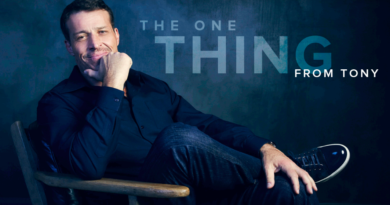How does having a different view on emotions help us?
You Aren’t at the Mercy of Your Emotions: Get Empowered Through Understanding
In a world where emotions can often feel overwhelming, it’s empowering to know that we aren’t simply at the mercy of our feelings. Dr. Lisa Feldman Barrett, a distinguished professor of psychology and a pioneer in the field of emotion research, brings to light a transformative perspective:
Our Brains Create our Emotions.
This understanding offers a powerful tool to harness your emotional experiences, fostering resilience and personal growth..
The Science Behind Emotions
Emotions are not just reactions; they are constructed by our brains based on our individual experiences, cultural backgrounds, and current circumstances. Dr. Barrett’s theory, known as the Theory of Constructed Emotion, suggests that our brains use past experiences to predict and categorize our feelings. This means that we have more control over our emotional responses than we might have previously thought.
Reframing Emotional Experiences
This perspective can be particularly empowering. Society often imposes stereotypes such as the suggestion that women are more emotionally driven or less rational. By understanding that our brains construct emotions, we can challenge these stereotypes and reclaim our emotional agency. We can start to see our emotions as something we can shape and influence, rather than something that happens to us.
.
Practical Steps to Harness Emotional Power
Self-Awareness and Reflection: Begin by paying close attention to your emotional experiences. Reflect on what triggers certain emotions and consider the context. Understanding the root of your feelings can help you manage them more effectively.
Mindfulness and Meditation: Practices like mindfulness and meditation can help you become more aware of your emotions and the thoughts that precede them. This heightened awareness can allow you to intercept and reshape your emotional responses.
Cognitive Reframing: When you feel a strong emotion, take a moment to reframe the situation. Ask yourself if there is another way to interpret the event. This can change your emotional response and give you a sense of control.
Build Emotional Granularity: Increase your emotional vocabulary. Instead of simply feeling “bad” or “good,” try to identify more specific emotions, such as “anxious,” “excited,” “disappointed,” or “hopeful.” This precision can help you better understand and manage your feelings.
Leverage Social Support: Talk to friends, family, or a therapist about your emotional experiences. Sharing your feelings can provide new perspectives and help you feel more supported and understood.
Embracing Emotional Resilience
Understanding that we construct our emotions allows us to build emotional resilience. Especially for women, who often juggle multiple roles and responsibilities, this resilience is crucial. By taking control of our emotional narratives, we can navigate life’s challenges with greater confidence and poise.
Moreover, this understanding can enhance our empathy and compassion. Recognizing that everyone constructs their emotions based on their unique experiences can foster deeper connections and more meaningful relationships.
Breaking Free from Stereotypes
Women have long been stereotyped as being overly emotional or less capable of handling stress. By embracing the science of constructed emotions, women can dispel these myths. And can demonstrate that emotional intelligence is a strength, not a weakness, and that the ability to understand and manage our emotions is a powerful tool in every aspect of our lives—from personal relationships to professional achievements.
Dr. Lisa Feldman Barrett’s groundbreaking work on the construction of emotions offers a liberating perspective for women. By understanding that we are not at the mercy of our emotions, we can take charge of our emotional well-being. This empowerment can lead to greater self-awareness, resilience, and ultimately, a more fulfilling and balanced life. Remember, you have the power to shape your emotional world—embrace it and thrive.




